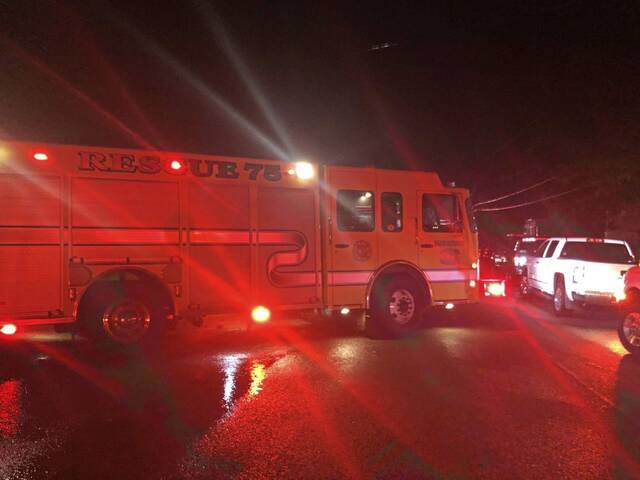Officials with the Greensburg Catholic Diocese on Wednesday announced the launch of a compensation fund for victims of clergy sexual abuse. The diocese, which includes Westmoreland, Fayette, Indiana and Armstrong counties, was the last of seven statewide to launch such a fund.
Greensburg Bishop Edward C. Malesic said those who were sexually abused when they were under the age of 18 by a priest, deacon or seminarian of the diocese — or by a priest or deacon from another diocese or religious order who had faculties and was in active ministry within the diocese at the time of the abuse — are eligible to apply for compensation, provided they previously identified themselves to the diocese as a survivor of childhood sexual abuse on or before Tuesday, Feb. 26.
Applications will be accepted through May 28, church officials said. Diocese officials did not disclose the size of the potential pool of people who have already reported alleged incidents of clergy abuse.
Six dioceses and the Archdiocese of Philadelphia have launched compensation funds. Slight differences exist from one region to the next.
Pittsburgh lawyer Alan Perer has filed lawsuits against both the Pittsburgh and Greensburg dioceses. Unlike the Greensburg fund, the one created by the Pittsburgh diocese accepts and processes claims for abuse allegations that have not been reported previously, he said. Perer said he intends to file claims in Pittsburgh for each of 66 clients he represents there and “see what happens.”
Jerry Zufelt, spokesman for the Greensburg diocese, declined to say how much has been set aside for its fund. He said a full disclosure of expenses will be released after the process closes. The diocese will tap its own resources rather than parish money to underwrite the compensation fund, he said.
Information about the program and claims procedures is available on the diocese’s website, dioceseofgreensburg.org, and at www.commonwealthmediation.com.
Malesic said the Greensburg diocese fund will be administered independently by Paul Finn and Brian Mone of Commonwealth Mediation and Conciliation, Inc.
“I want to be sure we do everything possible to assist survivors in the healing process,” Malesic said in a statement. “Their stories, their pain and their anguish have had a tremendous impact on me. This is more than a compensation fund. This is a commitment to listening to and supporting the same people we have failed to protect.”
Church officials said the fund will be open to survivors regardless of whether their abuse fell outside the statute of limitations for civil suits. State law bars court action in child sexual abuse cases after a victim’s 30th birthday.
Those who accept a settlement from the Greensburg diocese will be required to sign away any future rights to sue but will be free to discuss whatever award they receive, Zufelt said. The diocese will provide free legal counsel to advise fund applicants who do not have lawyers, he added.
Catholic dioceses across the state announced they would underwrite compensation funds for clergy abuse survivors in November shortly after an effort to open the statute limitations to old abuse cases stalled in the Pennsylvania General Assembly.
State lawmakers who launched the effort to open the statute in the wake of the Pennsylvania grand jury report that detailed rampant allegations of child sexual abuse by Catholic clergy across the state say they intend to renew those efforts this year.
Richard Serbin, an Altoona lawyer who has represented hundreds of clergy abuse survivors across the state, said he has cautioned clients, most of whom are barred from court by the statute of limitations, that lawmakers here may yet open the door to such claims.
“New York just passed a law two and a half weeks ago (to open the statue of limitations), and New Jersey is supposed to consider it next month. If they pass one, it would add pressure to not only Pennsylvania, but all across the country,” Serbin said. “So, I tell clients they have time to submit to the compensation fund, and they lose nothing by waiting some time. However, if they want to get this behind them and they can see a benefit emotionally in doing so, I am prepared to assist them to in filing.”
“Every client is different. Some are so emotionally distraught it is important for them to do this route, others are unable to maintain employment because of the trauma and for those it is a financial necessity to get some help going forward. While others are very determined to exposed all those who share responsibility for this crisis. For them, the money is secondary it is a matter of exposing what occurred and the complicity of not only of the bishops and dioceses, but also the Vatican,” Serbin said.
To date, Serbin said he and a colleague assisted a client in negotiating a single settlement with the Philadelphia Archdiocese.







